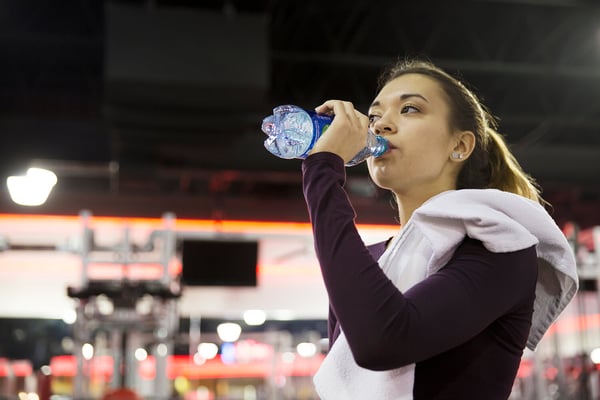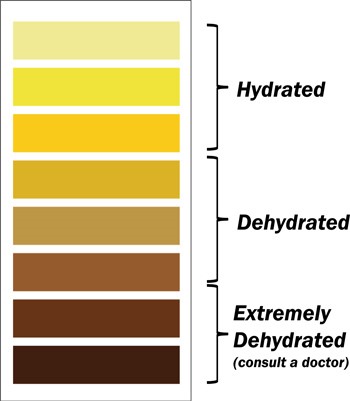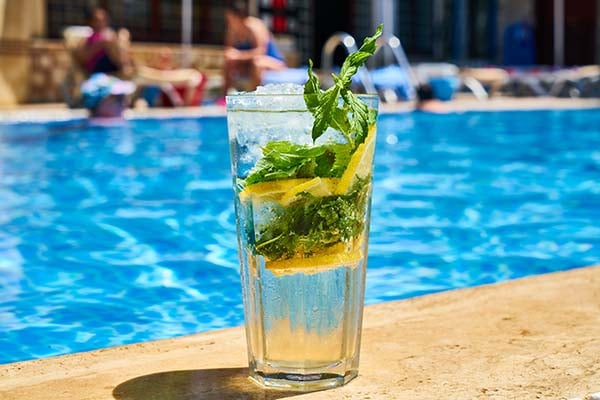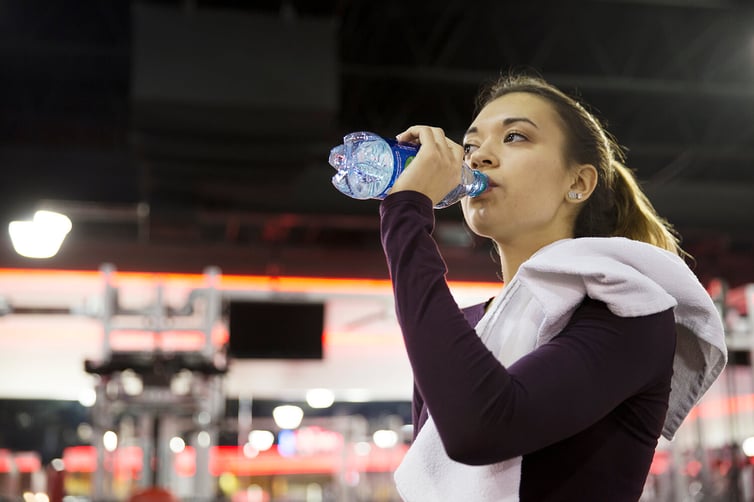[As appeared on Star Tribune] As the summer begins and the heat gets hotter how will you and your loved ones stay hydrated?
Many likely know that staying hydrated is important but what does it mean to be hydrated? How much is enough fluid? What fluids improve hydration? What happens if we don’t stay hydrated?
We aim to answer these questions and offer tips to make hydration easy!

Water is important for many of our bodily functions because it makes up approximately 60% of the human body. Because of this, there are many benefits to maintaining adequate hydration including:
- Supports proper function of your heart, brain, and muscles
- Proper flow of nutrients to your cells
- Prevents constipation
- Removes toxins
- Delays physical fatigue
- Maintains mental alertness
It is essential to consume fluids for hydration year-round as it is possible to become dehydrated during any season. But, rising summer temperatures and humidity make dehydration even more likely.
If we don’t stay properly hydrated we run the risk of suffering the physical consequences of dehydration including dizziness, weakness, and confusion. Signs you may be dehydrated include dark-colored urine or decreased urine output, light-headedness, flushed skin, and intolerance to heat.
If you or someone you know is suffering from these symptoms it is important to get out of the heat and seek medical attention quickly.
It is also easier to become dehydrated at higher altitudes if you are not appropriately acclimated. At higher elevations the heart and lungs have to work harder to supply the body with oxygen, which means we must breath more rapidly. Respiration is one of the ways in which we lose bodily fluid, after urination and perspiration, so breathing more rapidly can increase fluid losses.
How Much Is Enough?
Each and every body is different and, therefore, every body needs a different amount of water. The old adage “eight 8-ounce glasses of water a day” really doesn’t meet everyone’s needs.
A more personalized rule of thumb is to consume half your body weight. For example, if a person weighs 200 pounds they should aim to drink 100 ounces of fluid daily. In addition, the Cleveland Clinic offers these factors and tips when determining how much water you need each day.
An easy way to quickly assess your hydration status is to take a look at your urine.

Aim to stay in the hydrated range as much as possible. Drink more fluids regularly if you find that you typically hover around the dehydrated range. Ideally, we would never become extremely dehydrated; however, if your urine is dark in color like the chart it is recommended that you seek medical attention quickly.
Fluids for Hydration
Not all fluid is equal when it comes to hydration. Alcoholic beverages do not support healthy hydration and likely increase dehydration. Caffeinated drinks, such as coffee, tea, or soda have been debated as to whether or not they are hydrating or not as well.
Caffeine may have a mild diuretic effect but, generally speaking, caffeinated beverages do not cause a fluid loss greater than the amount of fluid ingested. So if you drink an 8-ounce cup of coffee, you may lose 8 ounces of fluid, leaving you no more or less hydrated than when you drank the coffee.
For ideal hydration, your best bet is to consume water regularly throughout the day. But plain water can get boring day in and day out so keep it interesting with infusions!
Fun with Infusions
- Lemon Lime
- Cucumber Mint
- Strawberry Lime
- Honey Lemon Ginger
- Apple Cinnamon
- Orange Pineapple
- Create Your Own!

Don’t worry too much about precise recipes or ratios. Simply add a few slices of your favorite fruits, vegetables, herbs, or spices to water, refrigerate for a few hours or overnight, and enjoy!
Consuming fruits and vegetables is a great way to support healthy hydration. Think about a juicy watermelon or cucumber―these foods have a high water content and can help you stay hydrated.
Exercise Hydration
For the majority of us, water is the best fluid to consume during exercise. It is generally the recommended drink for exercise sessions lasting 60 minutes or less. If a bout of exercise is greater than 60 minutes, particularly intense, or conditions are quite hot and humid, sports drinks containing carbohydrates and electrolytes may be recommended.
While commercial sports drinks are available, they can be quite expensive and most contain artificial colors among other things that may not be ideal for health. Consider making your own sports drink such as these recommended by dietitians from the US Olympic Committee.
Not only are homemade sports drinks likely healthier, they can also save money as well.
Personal Hydration Plan
For the most part, we can stay hydrated by drinking when we are thirsty. But during exercise, travel, or excessive heat or humidity, our thirst may fall behind our need for fluid. This is where a personal hydration plan can help.
During your normal routine, weigh yourself without any clothing before and after exercise. To stay hydrated you will want to drink up to 16 ounces of fluid for each pound lost per hour. For example, if a person weighs 150 pounds prior to exercise then weighs 148 pounds after exercising for an hour, they should aim to drink 32 ounces of water during an hour-long exercise session. With this goal, the person is aiming to maintain their hydration status during exercise.
Apps such as MySweatRate can help you assess your sweat rate and create a plan to prevent dehydration during exercise.
Have Fun
Since hydration is vital for health and exercise performance, it can be somewhat stressful to think about. Rather than worrying about how much, when, or what to drink, try to keep it simple and maybe even fun.
Carry a cheerful, reusable water bottle with you. Determine how many of those bottles you want to drink daily. Make a game of keeping track of your fluid intake by putting rubber bands on your bottle each time you finish one or moving a band up marks or ridges of the bottle. Try new flavor combinations with seasonal fruits or vegetables. Then get out and play before summer ends!
Check out Medi-Share's Wellness Library for free health and wellness tips!

Debbie Ryan is a Public Relations Specialist with Christian Care Ministry/Medi-Share. In addition to being a wife and mom, Debbie is passionate about health and wellness, and encourages others in healthy living every chance she gets.
